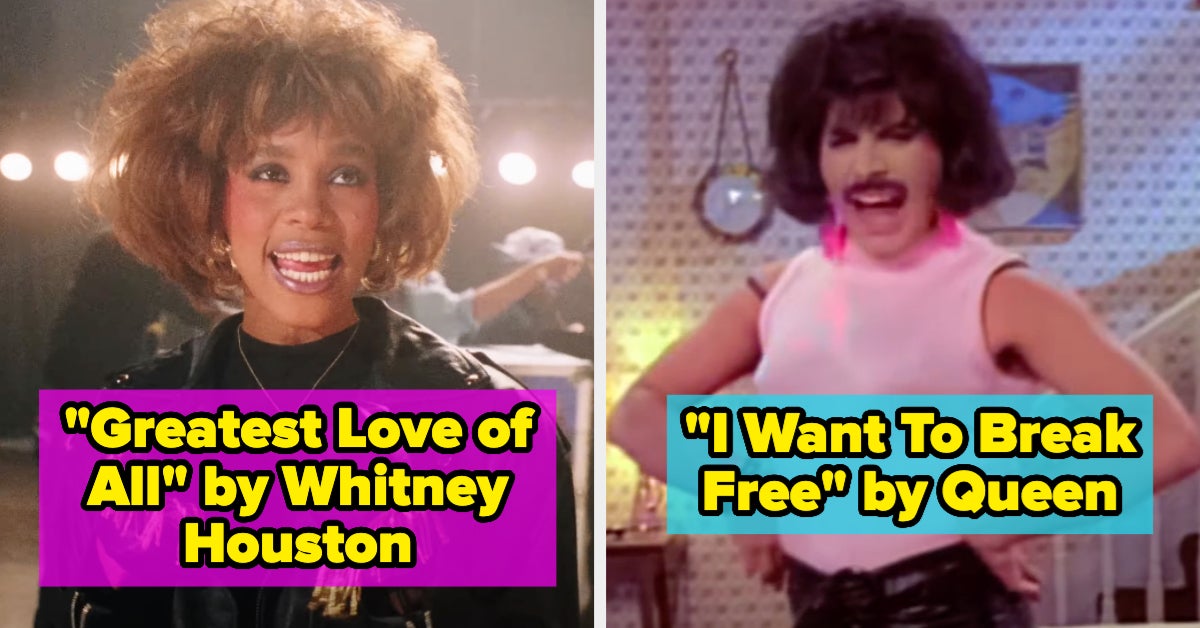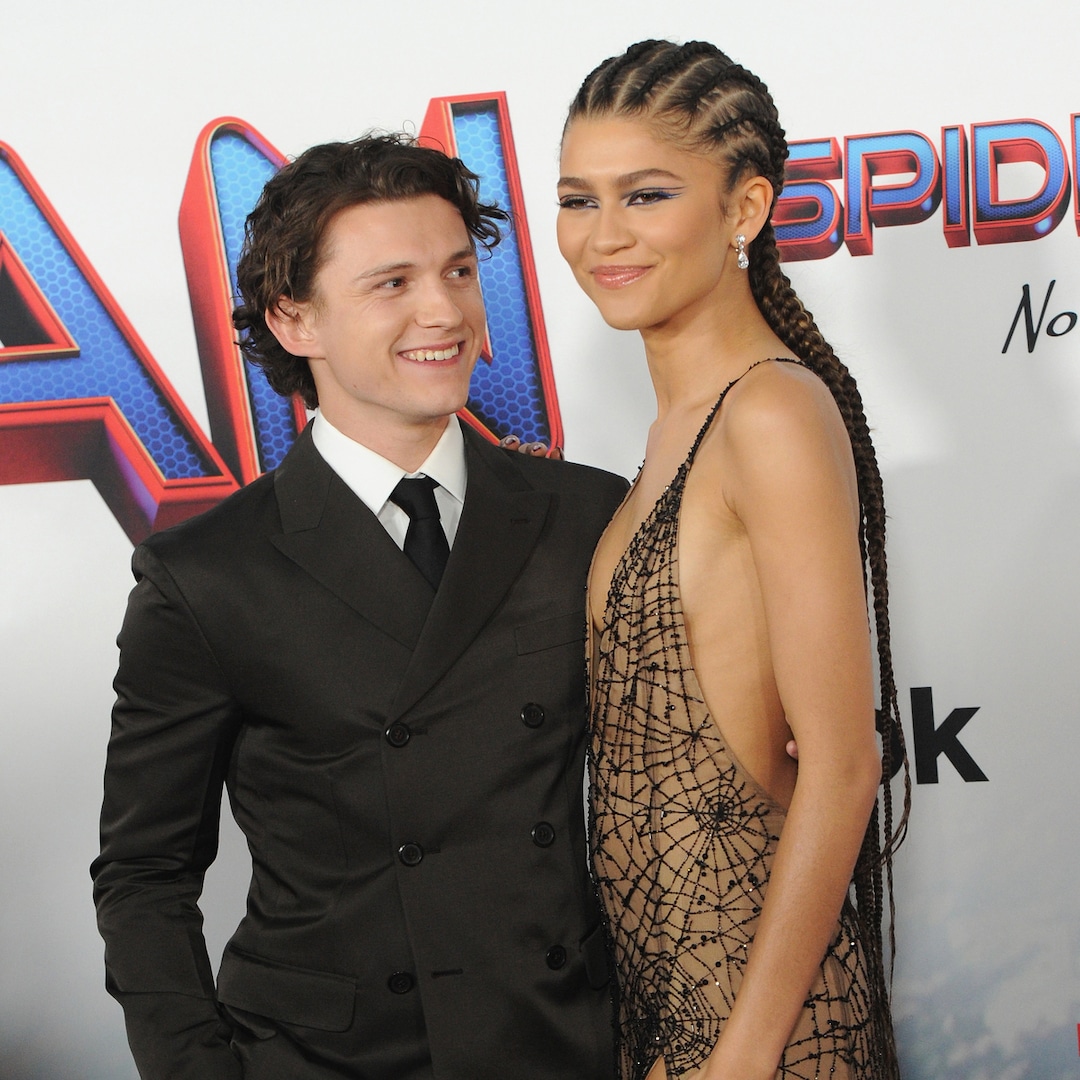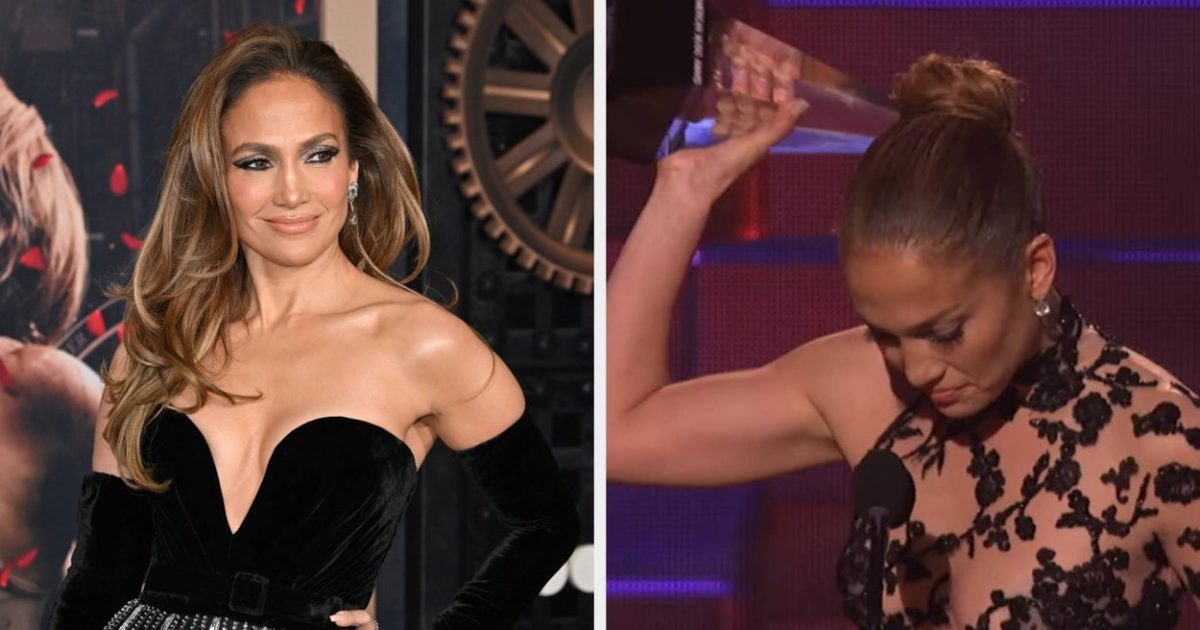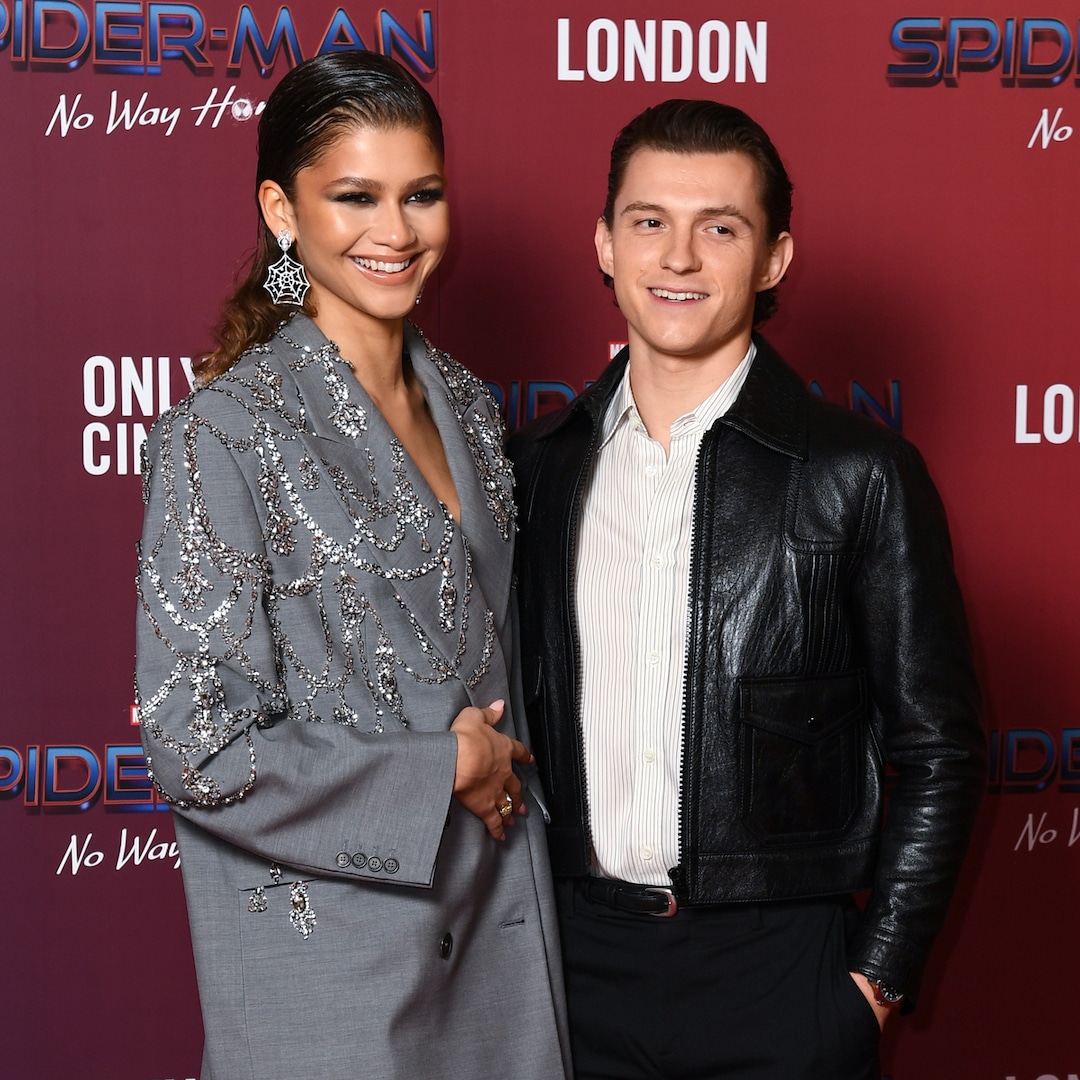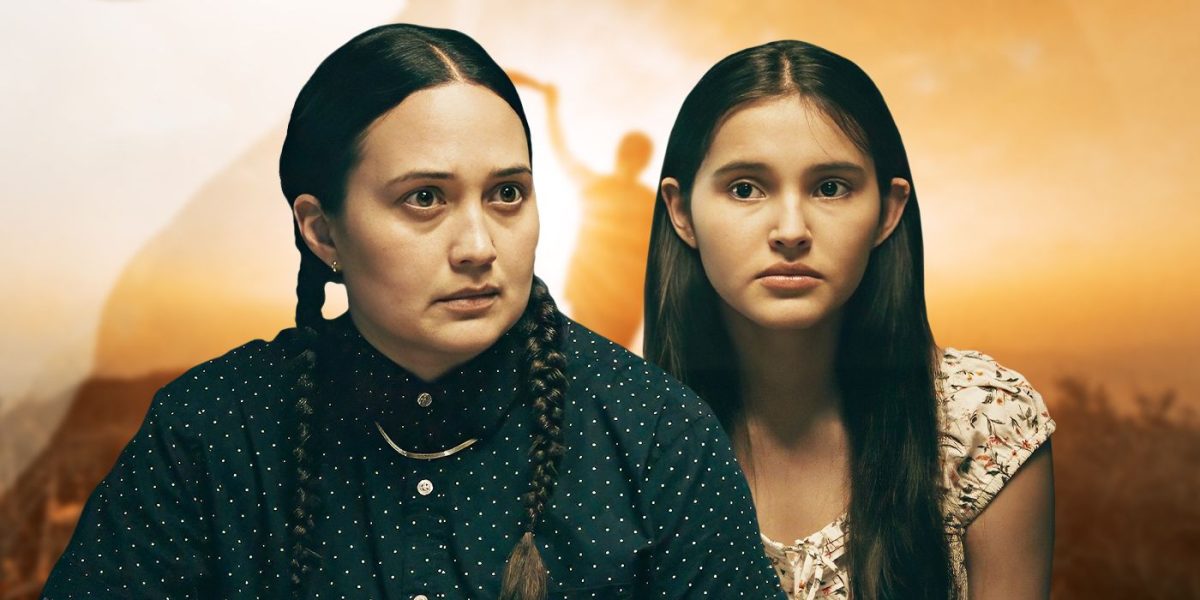
Lily Gladstone Reveals Who Inspired Their Complex ‘Fancy Dance’ Character
Jun 29, 2024
The Big Picture
Lily Gladstone and Isabel Deroy-Olson discuss how
Fancy Dance
is a coming-of-age story.
The film’s intentional lack of black-and-white villains creates a realistic portrayal of navigating a colonized world.
Gladstone explains their approach to playing queer roles and characters from a gender lens in the movie.
Lily Gladstone has quickly become one of Hollywood’s most esteemed and sought-after actors — and for good reason. After shining in projects like Kelly Reichardt’s Certain Women and First Cow and The Unknown Country, they were cast in Martin Scorsese’s Killers of the Flower Moon and received widespread acclaim, including a Golden Globe, a SAG Award, and an Oscar nomination. They recently starred in true crime drama Under the Bridge alongside Riley Keough, which has strong Emmy buzz, and will soon be seen in Reed Morano and Charlie Kaufman’s highly anticipated The Memory Police as well as Andrew Ahn’s rom-com The Wedding Banquet.
At just 19 years old, Isabel Deroy-Olson has also already racked up quite an impressive resume, having starred in the Alfred Molina-led mystery series Three Pines and also appeared in Under the Bridge, where she coincidentally plays the younger version of Gladstone’s character. If Erica Tremblay’s (Reservation Dogs, Little Chief) Fancy Dance is any indication, her career is just getting started, and there are many more excellent projects in her future.
Collider got the chance to speak to Gladstone and Deroy-Olson about their newest film, the beautiful and moving Fancy Dance, where they play Jax and Roki — an aunt-and-niece duo determined to find out what happened to Roki’s mother, Tawi (Hauli Gray). To do that, they must navigate a broken system and their grief, relying on each other for strength and hope as the day of the state powwow draws near. During the conversation, Gladstone and Deroy-Olson reveal who inspired their characters, why it’s important the film doesn’t have any black-and-white villains, how Gladstone approached the queer love story, and more.
Fancy Dance Following her sister’s disappearance, a Native American hustler kidnaps her niece from the child’s white grandparents and sets out for the state powwow in hopes of keeping what is left of their family intact.Release Date January 21, 2023 Director Erica Tremblay Cast Lily Gladstone , Isabel Delroy-Olson , Ryan Begay , Shea Whigham , Audrey Wasilewski Runtime 90 minutes
Lily Gladstone and Isabel Deroy-Olson Talk ‘Fancy Dance’ as a Coming-of-Age Story
COLLIDER: There are a lot of genres folded into this movie, but at its core, it feels like a coming-of-age story. I want to start with you, Isabel, because you do such a phenomenal job of straddling that line of childhood with the candy necklace and the hope that everything’s going to work out but then being hit with a harsher reality with her mom and being forced to grow up and confront it. How did you find that balance?
ISABEL DEROY-OLSON: I’m so much older than Roki, so a lot of it was tapping into my younger self and thinking about what I was like at that age. It was really special to watch it last night because I saw so much of my younger cousins in her, and I can’t wait for them to watch it and to see themselves. Roki always finds that moment of joy to laugh and to kind of lighten the situation, so while I feel like she does have to grow up very quickly, she’s really holding on to that part of herself that’s full of hope, and that’s so important.
Lily, I feel like Jax is on sort of a parallel coming-of-age journey of her own where she is having to take on this more responsible sort of maternal role. I watched Little Chief to prepare for this and found really similar themes in being put in a position to care for children who aren’t biologically your own. I’m curious what you find interesting or intriguing about that dynamic, especially as Erica writes it, because that was another collaboration with her.
LILY GLADSTONE: I think the dynamic definitely shifted in the family once Tawi is gone. Because Jax has always been a caretaker of Roki — Roki is her child — but when Tawi is around, she’s pulling a certain level of income into the home. Clearly, it’s established that Tawi takes off once in a while, needing mommy time, and Jax takes over in those cases. I’m sure there have been times when JJ kind of pulls his head out of his ass and helps a little bit more, too. [Laughs]
For Jax, you meet her at this really interesting time where you sense that she has — for a minute now — been working really hard at keeping her life kind of on the straight and narrow and removing moral conflicts for herself, realizing that maybe some of the work that she was doing to keep her family afloat and an old version of herself was actually really harming her community. So she’s done the work and is committed to making way less money — doing some of the things her mom and her grandma taught her to do because her mom is gone, their grandmother is gone. It’s Jax’s number, you know? She’s up.
With Tawi being gone, I think Jax likely got used to being in somewhat of a — at least in a Western sense — masculine role in the family, providing the bulk of the income with her old job, providing a level of protection for her sister. I feel like Jax is kind of already at that point where the old life is always hanging in her head. The familiarity and comfort in some of those spaces make her uncomfortable that she can operate in such a way. So I think when Tawi is gone, that equilibrium shifts, and suddenly Roki doesn’t have her mom. She’s lost that presence. Jax is pretty aware that she doesn’t want to believe it and is searching for answers but kind of, in her gut, knows.
I love that, in the coming-of-age story, if that’s Jax’s transformation, you see people backslide. Jax was around Roki’s age when she lost her mom and was independent enough — with her sister and a community around her — to decide to not live with their dad. So, Jax had to become self-sufficient and had to help sustain her and her sister to keep them on their land in their community. So Jax never really grew out of that adolescence-like framework or those adolescent patterns to just survive, but she’s trying her hardest now, so it’s actually really heartbreaking.
But it’s also kind of a space that I see a lot of people in my community and some people in my family who come from spaces that they maybe carry some shame about or at least are like, “No, that’s an old life. I’m committing myself to land, to language, to family, to culture.” Because it keeps them on the straight and narrow, and it’s important. Who else is gonna do it if you don’t? Jax does that reluctant backslide to do the bigger thing of going into the belly of the beast to get answers about her sister — she walks back into spaces that she had comfort in at one point in her life that she no longer does. I love that it’s not a clean coming-of-age for either of them. Thank you for that observation.
Yeah, of course. That’s such a great answer, too.
‘Fancy Dance’ Invites a Universal Audience
It really feels like a love letter to womanhood and sisterhood, even beyond that central dynamic. It felt so intentional to see the waitress at the diner celebrating Roki’s period with her, and the makeup woman was so helpful. I’m curious if that’s something you guys ever talked about as a more overarching theme that spreads through beyond that dynamic.
GLADSTONE: The lipstick scene — that’s the co-writer, Miciana Alise, playing the makeup artist. It was important to Erica that that scene and that woman be an Indigenous woman because she needed to recognize immediately what was going on and not judge it and just allow these two to have their moment.
I also really love that the characters in this that you would see as villains — like Frank and Nancy — are well-intentioned. Jax and Roki are navigating a colonized world, and when you do come across these non-Indigenous characters, these white characters, they’re not black and white either. The waitress at the diner has got her experience, but she’s not gonna rain on yours, either. I just love that moment, that exchange, and that light quip. It’s kind of what it feels like being Indigenous in Oklahoma. Honestly, a lot of people don’t present as Indigenous but are and will have an immediate understanding, and that’s where you kind of find each other — just your ease around each other in cultural context or this coexistence acceptance.
Then there’s the other side of it, too. It’s close to the border, and there’s the interaction with the ICE agent, who is still kind of a plucky, nice guy who’s got his hand on his gun. There’s sort of that authoritative flex with a cheeky smile that is incredibly tense and incredibly uncomfortable. But I really love the way that actor, [Cory Hart], played that, too — the way that he was cast.
All of those things were incredibly intentional because as soon as you put any caricature, even in those peripheral characters, up on screen [you lose something]. You have each character have a moment where they got to extend a level of compassion, a level of connection, with these characters because that’s how society moves. It’s why people are unable to examine their complicity in some bigger systems that are oppressing some and not others that are making it impossible for Jax’s family to go after Tawi and find out what happened to her. And it doesn’t alienate the audience that we’re trying to have that conversation with — it brings them in on it. It’s a reflection of the reality we all live.
DEROY OLSON: I love that diner scene so much. I got to eat such great food.
Strawberry everything!
DEROY OLSON: Strawberry everything! But yeah, I think that scene is so important, especially for young women to see. Roki is such a young kid, and she’s really stepping into herself, and she’s really proud of herself. There’s never a moment in the film where Roki’s ashamed of her culture or her body, and so having those moments of celebration were really important to us to get right. And were just really fun to film, too, because the food was amazing.
GLADSTONE: And you see what Roki’s getting from her home life. In another narrative, it’s easy to judge the adults in her life and the environment she’s growing up in, but then you see how she conducts herself in society — her sense of herself is very strong. It’s like, “Oh, she’s getting something pretty irreplaceable from her family and her community,” which drives the narrative of, “Maybe not a better thing for her to place her in the nice house with the routine and the schedule and the stepmom who wants to take her shopping.” That’s not what Roki needs when you see who she is.
Lily Gladstone on Playing Queer Roles and Approaching Characters From a Gender Lens
Image via Apple TV
I think that absence of shame or taboo and that sense of pride is something that also feels like a theme throughout the movie. I really love the relationship between Jax and Sapphire. As a queer woman myself, I love it when the representation is done really well. The choice to have Sapphire work at a strip club and have that not be a thing is really cool and rare. I just thought that relationship was done really beautifully all around. Can you talk a little bit about what it’s like to get to play a queer character like that, especially as someone who uses non-binary pronouns yourself?
GLADSTONE: Yeah. Erica shaped that scene because she spent a lot of her life working in strip clubs as a dancer. Erica has spent time as a sex worker, and she really wanted to have this scene of consensual, sweet, romantic love happen in a strip club because she says, on the inside of it, it’s a woman’s space. Men or patrons are offering money, but that space is about the dancers, and that dressing room is about what’s going on and the relationships between those women. So it was lovely to have that construction there.
Then, as far as so many of my characters who fall somewhere in the alphabet mafia [laughs] — somewhere on the spectrum in the American West in rural America — I get approached with characters like that a lot. I wouldn’t necessarily say I seek it, but when it’s there on the page, it’s so compelling to me because I tend to approach characters, as you said, through my own framework and kind of a gender lens. Gender is such a cultural thing.
I remember, as a young kid, I was seven or eight, and I was constantly seeing particularly Native boys in Western spaces get misgendered if they were wearing their hair long. That gave me the idea back then of, “Why don’t we just call everybody the same? Let’s just say ‘they,’ you know?” And then learning that, actually, in Blackfeet and in a lot of Indigenous languages, there are no gendered pronouns. Same in Chinese. I’m working with Joan Chen right now, and she constantly is having to apologize for switching gender on people because it’s not a thing in Chinese. There are no gendered pronouns.
In Blackfeet, there are gendered verbs, and I think that’s a very interesting thing and a framework for me as an actor because, within our culture, there are actions that are gendered, but that gender is not applied to somebody based upon what they’re assigned at birth. It’s a manifestation of their very real instincts as a human being — what they’re drawn to doing. So then, when it comes time for you to get your name, it’s like your name is what implies your gender. A woman has ‘aki’ attached to her name, which means woman, but it’s not only women who have women’s names, and it’s not only men who have men’s names.
I think I approach queerness and the characters that I play from a gender lens. Where do they identify? What is their role and purpose? What are they drawn to doing in their lives and in society? How does that fit within their small cultural framework, and then how does that fit within a larger cultural framework? How does that fit into American society? Because through a lens, you would look at Jax and say that Jax is very masculine. There are a lot of aspects of Jax’s life that are very masculine. A lot of the people in my own family, like my brothers — my cousins, but you know, my brothers that I grew up with — are very much in Jax. When I watch Jax, I see particularly two of my boy cousins who were very protective and teasing of me. They’re the ones that I grew up with closest. But Jax is also very strongly an Indigenous woman, and then sexuality within that spectrum — through a Blackfeet worldview, through a lot of Indigenous worldviews, sexuality is something entirely different from gender. The two have nothing to do with each other. Gender is: What’s your role in society? How are you pulling your weight, basically? What are you contributing? Who are you? And then you’re treated that way. Who you love is your business.
So, I think a lot of my characters I do approach through a gender lens because gender is a cultural thing. Gender is an expression of self and of action and of impulse and instinct, like all character work is. And then, within that, it’s, “Who does the character love? And how does the character love that other person? How sexual is this love, how asexual is this love, how self-aware is the character where they fall in all of this?”
It’s just such a fascinating part of human nature. I think my Indigenous language, even though there weren’t fluent speakers around me all the time when I was growing up, [gives me a] worldview [that] remains intact in society and how people are treated and how gender and sexuality are expressed.
Fancy Dance is available to stream on Apple TV+ June 28.
Watch on Apple TV
Publisher: Source link
These Are '80s Songs That Gen X'ers And Old Millennials Grew Up On, And There Is No Way Anyone Under 27 Has Heard All Of These
And if you are over 40, then you probably remember when these were brand-new and not songs kids are discovering on TikTok.View Entire Post › Disclaimer: This story is auto-aggregated by a computer program and has not been created or…
Jan 12, 2025
Tom Holland Asked Zendaya’s Dad for Permission Before Proposing
Tom Holland wove the perfect engagement for Zendaya. Less than a week after the Spider-Man actress debuted a 5-carat diamond ring on her left ring finger at the 2025 Golden Globes, Tom's father Dominic Holland confirmed the couple's engagement, sharing a few parts about the special day, including one important detail.…
Jan 12, 2025
Jennifer Lopez Finally Understands Mi Gente Latino Meme
Jennifer Lopez Finally Understands Mi Gente Latino Meme Kicking off 2025, J.Lo is now promoting Unstoppable, a new biography drama in which she stars alongside Moonlight actor Jharrel Jerome. At the 2011 American Music Awards, Jennifer won Favorite Latin Artist…
Jan 11, 2025
Tom Holland's Dad Shares Insight Into Zendaya Engagement
Tom Holland became the greatest showman for his proposal to Zendaya. Just days after the Spider-Man actress turned heads at the 2025 Golden Globes with a 5-carat ring on that finger, Tom's dad... Disclaimer: This story is auto-aggregated by a…
Jan 11, 2025








